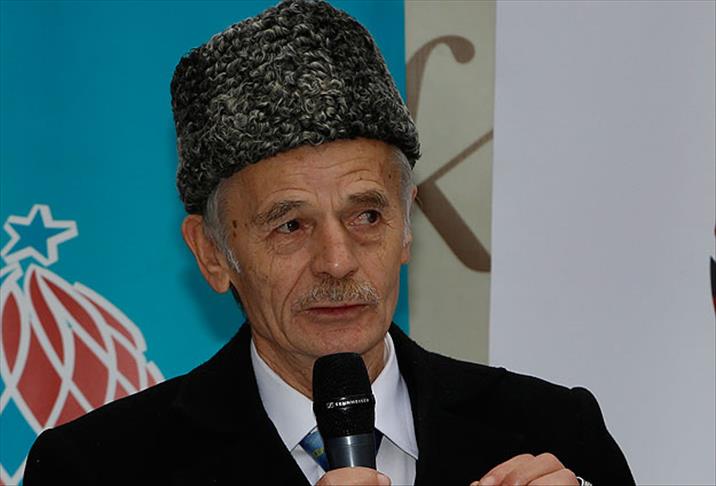Turkey's Crimean Tatars worried for Crimea
Crimean Tatars have been resident in Turkey since the 18th century after Russia's first annexation of the strategically important pennisula and now fear history is repeating itself.

by Esra Kaymak
ISTANBUL
Crimean Tatars in Turkey are worried about the ongoing crisis in Crimea after the recent Russian annexation, fearing a repetition of history that saw around two million Tatars migrating to Ottoman Turkey for at least two hundred years.
The Crimean Tatars ordeal began in 1783 when the Russian empire annexed Crimea resulting in their migration to the Ottoman Empire that continued in waves over the ensuing years as the Crimean War of 1853–1856 and the Russo-Turkish War of 1877–78 took their toll.
Professor Hakan Kirimli from Bilkent University estimates that at least 1,800,000 Crimean Tatars migrated to Ottoman territory between 1783-1922 to avoid the wars raging across their country.
However, there are no reliable official figures for the number of Crimean Tatars currently resident in Turkey but the International Committee for Crimea based in Washington D.C. estimates up to 6 million Tatars dwell in the country and there are around 150,000 living in Eskisehir, central Anatolian Turkey.
The migration of Crimean Tatars and wars engulfing Crimea culminated in 1944 as Stalin and his Soviet Union, sweeping west at the end of World War II, forced those left from the ethnic group, still in Crimea, into exile. Nearly 200,000 Tatars are believed to have perished during this period, which they have named Surgunluk (exile), when after being rounded up they were sent to the desolate regions of places like Uzbekistan to live. Many only returned to their homeland after the USSR crumbled in the 1980s.
The leader of the Crimean Tatar National Movement, Mustafa Abduldzhemil Kirimoglu, recently said 'it is better to die rather than to live on exile' and stated the movement believed in the territorial integrity of Ukraine.
While Ergun Sevimsoy from the Crimean Tatars Cultural Foundation in Istanbul has said, "If my people living in Crimea are forced to leave our country again, my dreams will be completely crushed, all of my hopes will disappear."
"I have hopes that one day, I can enter my homeland freely. I carry hopes that I may buy a house and start to live there in the future. I want my children to see Crimea and possibly marry with someone from Crimea. These are my continuous dreams," Sevimsoy continued.
He also called on the Islamic world to exert their influence and object to the situation in Ukraine.
Lejla Aliyev, who lives and works as a housekeeper in Turkey, is concerned for her three children and husband who live Bakhchysarai, back in Crimea, but is not sure it will be possible for her to travel back to see them as she holds a Ukrainian passport.
Aliyev’s grandparents were exiled to Uzbekistan in 1944 by Russia and she was born there in 1964, "My father died in Uzbekistan, but my mother was able to die in Crimea after we moved to our homeland in 1988," she notes.
"People have become uneasy but whatever they face, they want to continue to live in Crimea. They don't want leave Crimea whatever the result will be. I make telephone calls with my family members there and they tell me they want to die in Crimea rather than leaving," she adds.
Pro-Moscow forces took control of the Crimean Peninsula in late February and following a referendum in the region Crimea decided to secede from Ukraine and join Russia. Russian President Vladimir Putin has since signed into law the annexation of Ukraine's strategic peninsula amid criticism and sanctions from the European Union and the U.S.
englishnews@aa.com.tr
Anadolu Agency website contains only a portion of the news stories offered to subscribers in the AA News Broadcasting System (HAS), and in summarized form. Please contact us for subscription options.

